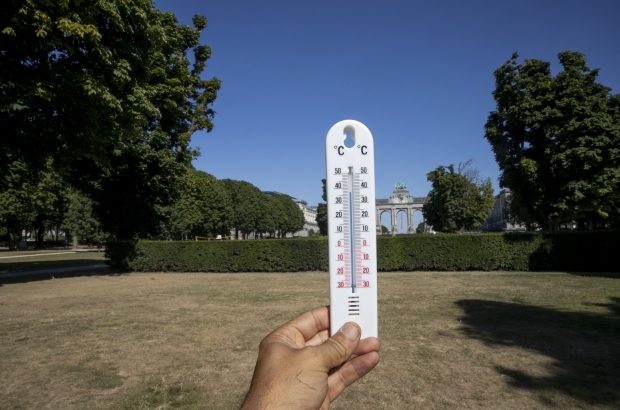- Daily & Weekly newsletters
- Buy & download The Bulletin
- Comment on our articles
European study examines climate change impact in Brussels
A European study on heat control in 24 cities has labelled the situation as "critical", and has concluded that Brussels needs to prepare better as it becomes increasingly vulnerable to heatwaves in the future.
The study comes from Sweco, Europe's largest architecture and engineering consultancy, and scrutinised the climate plans around heat-related concerns of various European cities. The report in general finds "significant shortcomings".
“Europe is rapidly becoming both hotter and more urbanised at the same time, and its cities need to transform to combat this — it is not a problem that will go away,” Dr Katherine Maxwell, one of the main authors behind the report, said.
"Heat-related concerns are often overlooked in climate plans, and cities in Northern Europe specifically need to prepare better, as they are still designed to protect populations from the cold, not heat.
"Authorities and policymakers need to look at regulations and act to address heatwaves, this must be included as a key component in the green transition of our urban areas."
The report further states that digital innovation and natural solutions, as well as designing high-performance buildings, should form the pillars of heat plans.
The authors predict an estimated increase in heatwave days of 130% in Brussels from 2020 to 2100.
“In Belgium we have chosen to combine the management of high temperatures with the issue of ozone peaks, which are often associated with them,” Pascale Van Der Plancke, climate policy advisor at the City of Brussels, said in the report.
But Brussels is particularly vulnerable to heatwaves compared with other Belgian municipalities, the report said, with air temperatures in the capital up to 7-8°C hotter than surrounding rural areas.
“The city is experiencing an increased frequency and intensity of heatwaves, with at least one heatwave occurring every year between 2015-2019,” reads the report.
“Additionally, the duration of heatwaves doubled in the period 1988-2016 compared with 1901-1930.”
Addressing Europe more broadly, the report goes on to state that cities should invest in detailed data, such as better monitoring and evaluation and vulnerability mapping, and develop a long-term vision and seek transparent and collaborative governance, such as investment in knowledge, data-driven heat management and joint planning in a heatwave crisis.



















Comments
The study recommends more data collecting, more monitoring, but doesn’t give concrete recommendations what cities can do to mitigate the effects of climate change.